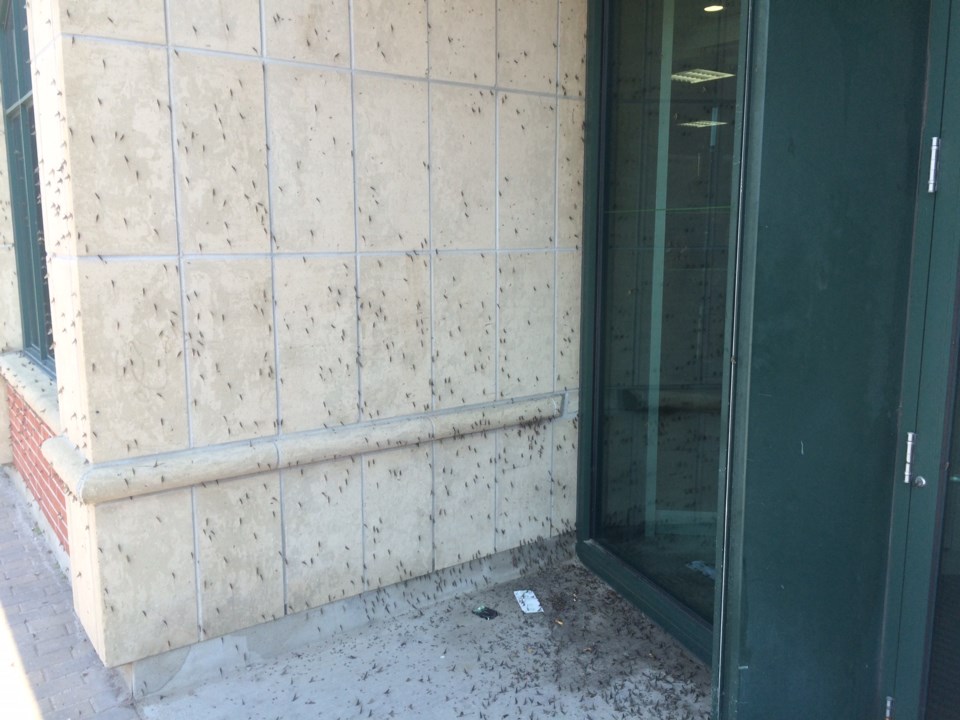It is that time of year again, as the heat and humidity have brought out the annual shadfly infestation today.
If you don't already know the smelly bugs have no mouths and are harmless. The bad news is for fishermen, as the Shad's make for a tasty fish treat and with the bugs coming out in masses, it's a buffet that area fish don't miss out on.
Science North says the Shad’s, also known as Mayflies, have a very short life on land and they come out in the swarms because they are not good flyers and cannot escape predators.
"They have evolved a strategy to ‘evade’ predators,” stated Science North’s Bruce Doran.
"The adults will time their emergence at the same time so that millions of them will appear. This essentially overwhelms predators, which cannot eat all the mayflies, and therefore many of the insects survive.
"The role of adult mayflies is to mate and lay eggs before they die. In fact, adult mayflies do not have mouthparts and die several days after they have emerged."
See related: They may be late but they have arrived
See related: Graphic designer creates scary giant shadfly
See related: Shadfly season literally sickens local woman
The Shad’s are not the only insect overpopulating the area as forest tent caterpillars emerge. Experts say they are part of a natural cycle.
Norm Dokis, Resource Liaison Specialist for the MNRF in North Bay, says the shadflies arrive when the water gets to the right temperature.
“When the water reaches 20 degrees Celsius, juvenile shadflies (nymphs) emerge from the water and head to the shore to moult and find mates,” said Dokis.
“The timing of this annual event can be linked to seasonal temperature, so when we have cooler springs, shadfly emergence may be delayed.”
While many find the shadfly phenomenon disgusting, Dokis insists research shows they are an important part of Lake Nipissing’s environment.
“They sequester nutrients from the lake (such as phosphorous and nitrogen) and transport these to shoreline environments during their emergence, which is where some of their ‘fishy’ smell may come from,” he said.
In 2018, the Shads did not arrive until after the Canada Day festivities which is similar to this year.
